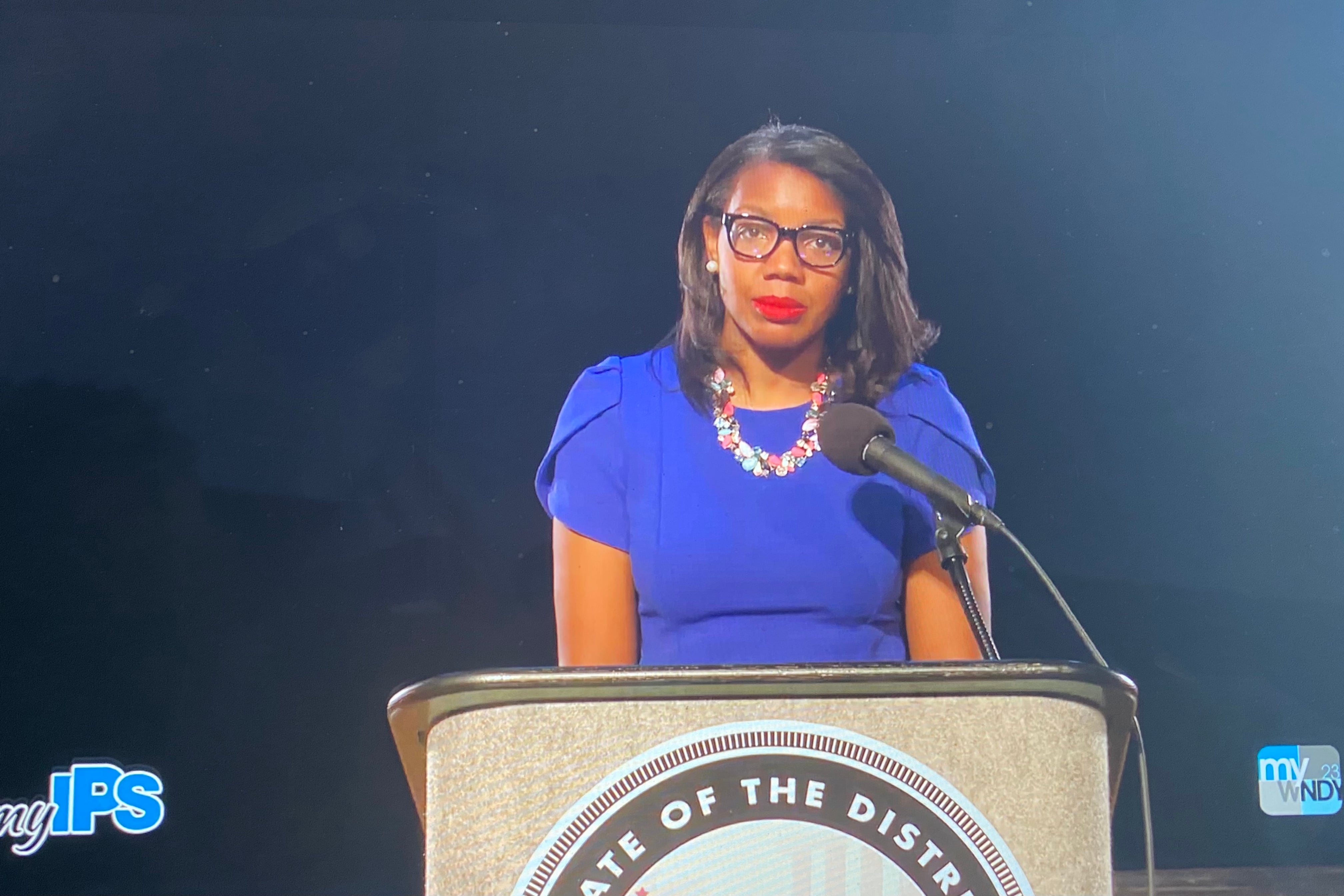Indianapolis Public Schools Superintendent Aleesia Johnson pushed new initiatives to promote equity and called out Indiana decision-makers for asking district officials to accept scarcity and to “do more with less.”
“That’s a pretty management phrase to paper over a kind of racist neglect and indifference that our schools and our community have suffered under for far too long,” Johnson said during her second “State of the District” address Wednesday night at Crispus Attucks High School.
Johnson called out public policy decisions that left out Black and Latino communities and created challenges for the district.
“The African American community particularly has not been at the forefront of decision-making,” Johnson said.
Indiana needs to invest in young people, she said. At the next legislative session, she will lobby at least for funding stability for the district, which faces looming budget constraints because of the pandemic and recession.
She said she was proud the school board granted teachers raises and credited the community, which passed taxes to fund them.
“Without our community’s direct support, those raises would not have been possible,” Johnson said. “And while that should not be our reality, I will be up front about the fact that it is.”
But, she said, in a district like IPS, officials have had to make sacrifices that other school systems elsewhere haven’t had to make.
During the 38-minute address, Johnson, who has been vocal about having hard conversations about racial disparities, focused on how the district is supporting those hit hardest by the pandemic — Black and Latino families.
Highlighting a promise that the district made in June, she introduced the district’s Racial Equity Policy 1619. It includes a rigorous curriculum to develop critical thinkers, racial equity training for first-year teachers, and discussions about race with IPS staff.
“In the end, our new policy can be a pretty piece of paper, dutifully recorded and filed,” Johnson said. “Or it can be an electric shock. It can be an exemplar for our city.”
“In Indianapolis, it’s been a hard struggle and, for too long, the people of this community who look like me have been the afterthought in the pragmatic decision-making processes to advance our city,” Johnson said. “We have been relegated to having access to less than fair and adequate conditions to achieve the American Dream that is so often touted.”
The hardship that the pandemic imposed on Black and Latino communities that have lost jobs or faced food or housing insecurity has influenced district decisions, Johnson said, including on starting the school year virtually. The school district was just one of two that started the school year virtually in Marion County. This is the second week all IPS students have the option of in-person learning.
Also to further equity, Johnson said the district is strengthening English-language arts and literacy in every grade level and launching a Freshmen on Track initiative to support students’ transition from middle to high school.
She also talked about an apprenticeship program that would help students get paid work experience during school.
Johnson said the district soon will have “challenging decisions and hard conversations” about how to meet students’ needs.








